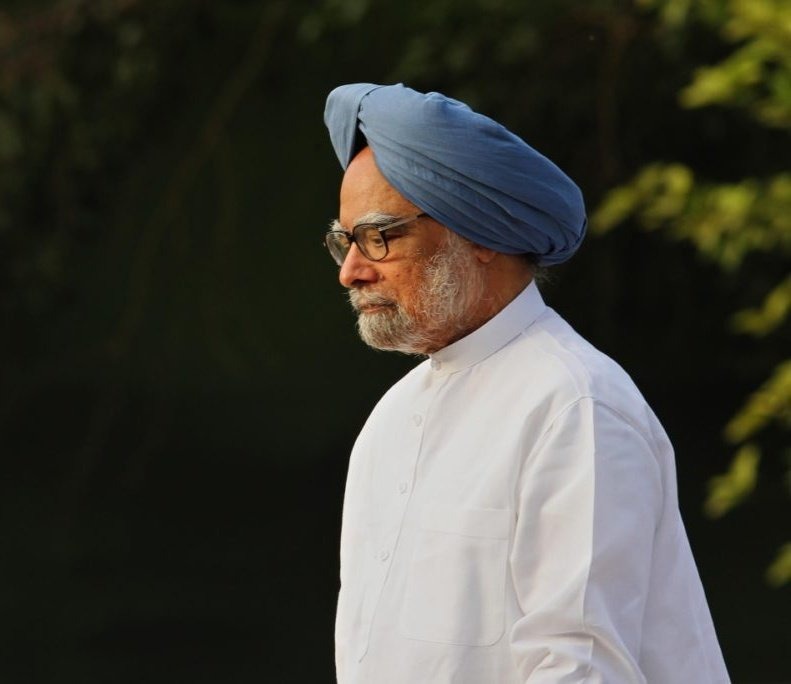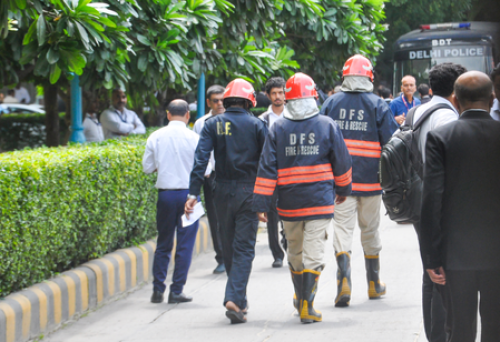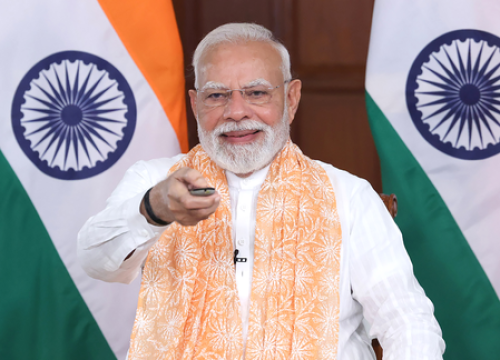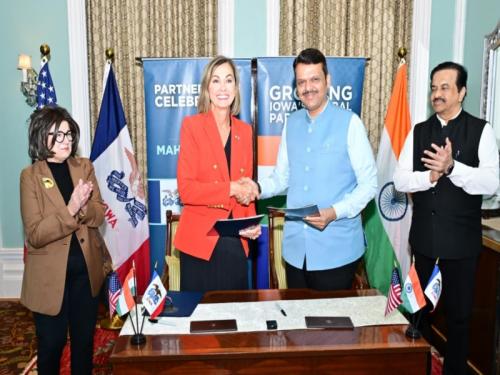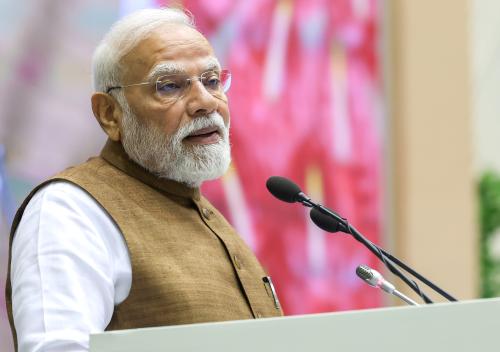New Delhi, Dec 26 (IANS) Former Prime Minister Dr. Manmohan Singh, who died at the age of 92 here on Thursday, was a visionary leader who is credited with bringing transformations to the country's economy when it was passing through a rough phase.
The Central government is likely to announce seven days of national mourning as a mark of respect to former Prime Minister Manmohan Singh who died at the age of 92 here on Thursday, according to sources.
Born on September 26, 1932, in Gah, West Punjab (now in Pakistan), Dr. Manmohan Singh was a celebrated economist and politician who left an indelible mark as the Prime Minister. He headed the Congress-led government at the Centre from 2004 to 2014.
As the first Sikh to hold the office of PM, Dr. Singh’s leadership was often credited for steering India through a period of significant economic transformation.
He remained instrumental in elevating the country to the ranks of major global economic powers.
His academic journey was also remarkable. It began at Panjab University, where he obtained a Bachelor of Arts and Master of Arts degree in Economics in the early 1950s.
He continued his studies at the University of Cambridge, securing a ‘First Class Honours’ degree in Economics in 1957.
He later completed his D.Phil. at Nuffield College, Oxford in 1962. Dr. Singh's early professional career was shaped by his role as an educator at Punjab University, the Delhi School of Economics, and at the UN Conference on Trade and Development (UNCTAD).
Manmohan Singh shot to prominence as the country's Finance Minister in the government headed by P.V. Narasimha Rao during 1991-96, having brought in sweeping reforms that transformed the economy.
The political journey of Dr Singh began in 1971 when he was appointed as an Economic Advisor in the Ministry of Commerce. He later acquired pivotal roles like Chief Economic Advisor (CEA) and Secretary in the Ministry of Finance.
It was his tenure as Finance Minister from 1991 to 1996 that marked a crucial turning point for India's economy.
During this period, India faced an economic crisis, and Singh's bold reforms helped transform the country's economic path. He implemented crucial liberalisation measures, devalued the rupee, reduced tax burdens, and attracted foreign investment, stabilising India’s economy and setting the stage for future growth.
After Congress' victory in the Lok Sabha elections in 2004, Congress leader Sonia Gandhi appointed Singh as the Prime Minister. India experienced significant economic growth under Singh’s leadership thereafter.
His regime was focused on inclusive growth, poverty alleviation, and development in various sectors such as education, food security, and employment. His policies paved the way for economic expansion, lifting millions out of poverty.
Dr. Singh was elected again in 2009. However, his second term was full of turmoil, as it was marred by challenges such as inflation, corruption scandals, and criticisms surrounding administrative inefficiencies. Despite these controversies, his government continued to make significant strides in economic and social policy, say observers.
Dr. Singh's tenure as Prime Minister was marked by several landmark reforms and initiatives.
His government passed legislation guaranteeing food, education, employment, and information rights for citizens. His leadership also solidified India's role as a prominent player in the global economy, with reforms that helped the country navigate a rapid phase of growth.
Singh was honoured with the Padma Vibhushan, India’s second-highest civilian award, in 1987, recognising his contributions to economic policymaking
According to some political commentators, despite facing flak over corruption scandals like the 2G spectrum allocation scam and the Commonwealth Games controversy, Dr. Singh's tenure remained a defining period in Indian political history.
Taking to X, the President Droupadi Murmu wrote: "Former Prime Minister Dr Manmohan Singh Ji was one of those rare politicians who also straddled the worlds of academia and administration with equal ease. In his various roles in public offices, he made critical contributions to reforming Indian economy. He will always be remembered for his service to the nation, his unblemished political life and his utmost humility. His passing is a great loss to all of us. I pay my respectful homage to one of the greatest sons of Bharat and convey my heartfelt condolences to his family, friends and admirers."
Taking to X, Prime Minister Modi wrote: "India mourns the loss of one of its most distinguished leaders, Dr. Manmohan Singh Ji. Rising from humble origins, he rose to become a respected economist. He served in various government positions as well, including as Finance Minister, leaving a strong imprint on our economic policy over the years. His interventions in Parliament were also insightful. As our Prime Minister, he made extensive efforts to improve people’s lives."
Taking to X, Rahul Gandhi, the Leader of Opposition in the Lok Sabha, wrote: "Manmohan Singh Ji led India with immense wisdom and integrity. His humility and deep understanding of economics inspired the nation. My heartfelt condolences to Mrs. Kaur and the family. I have lost a mentor and guide. Millions of us who admired him will remember him with the utmost pride."
Taking to X, Priyanka Gandhi wrote: "His honesty will always be an inspiration for us and he will forever stand tall among those who truly love this country as someone who remained steadfast in his commitment to serve the nation despite being subjected to unfair and deeply personal attacks by his opponents. He was genuinely egalitarian, wise, strong willed and courageous until the end. A uniquely dignified and gentle man in the rough world of politics."
Dr. Singh’s death has left the nation in mourning, with leaders from all political parties and across the world paying tribute to his legacy. His contributions to the field of economics and public service will be remembered for generations.



